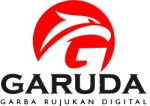Design and Development of an IoT-Based Monitoring System for Solar Phone Charging Stations.
DOI:
https://doi.org/10.61179/infact.v9i02.775Keywords:
Internet of Things (IoT), Monitoring, Photovoltaic, Arduino Mega, ThingSpeakAbstract
In recent decades, sustainability and renewable energy utilization have become major global concerns. Solar energy, harnessed through photovoltaic (PV) technology, is one of the most promising sources, with charging stations as a practical application. To ensure system efficiency and stability, a reliable real-time monitoring system is required. This study designed and implemented an IoT-based monitoring system for a Solar Phone Charging Station. The system employs an Arduino Mega 2560 as the main processor, NodeMCU ESP8266 for internet connectivity, and sensors including a 0–25 V voltage sensor, ACS712 current sensor, and DHT11 temperature and humidity sensor. Data are transmitted and visualized in real time using the ThingSpeak platform. Experimental results demonstrate that the system performs effectively in capturing and transmitting data. However, limitations remain, such as sensor reading errors, dependence on internet connectivity and solar-powered batteries, and relatively high error rates in current, temperature, and humidity measurements, indicating the need for improved calibration and validation.References
I. Rachman, D. Mukhsin Al Hamdani, and Y. Setia Permadi, “Rancang Bangun Sistem Monitoring Daya Listrik Cerdas Berbasis Internet of Things Menggunakan Mikrokontroler Arduino Mega Pro 2560 Dan ESP8266-01,” Ranah Res. J. Multidiscip. Res. Dev., vol. 5, no. 4, pp. 329–334, 2023, doi: 10.38035/rrj.v5i4.784.
S. S. Berutu and Y.-C. Chen, “IoT Power Monitor System Development and Using Deep Learning Technology for Disturbances Classification,” Asia University, 2021.
S. Nor, “Penerapan Internet Of Things (Iot) Sebagai Pengendali Peralatan Listrik Dan Pemantau Daya Listrik Berbasis Web,” J. EEICT (Electric, Electron. Instrumentation, Control. Telecommun., vol. 2, no. 2, pp. 22–28, 2019, doi: 10.31602/eeict.v2i2.4431.
T. S. B. Tedi, “Integrasi Internet of Things dan Teknologi Komputer: Tantangan dan Prospek dalam Era Transformasi Digital,” J. Portal Data, vol. 3, no. 10, pp. 2023–2024, 2023, [Online]. Available: http://portaldata.org/index.php/portaldata/article/download/491/475
M. F. Pela and R. Pramudita, “Sistem Monitoring Penggunaan Daya Listrik Berbasis Internet of Things Pada Rumah Dengan Menggunakan Aplikasi Blynk,” Infotech J. Technol. Inf., vol. 7, no. 1, pp. 47–54, 2021, doi: 10.37365/jti.v7i1.106.
B. Prayitno and P. Palupiningsih, “Prototipe Sistem Monitoring Penggunaan Daya Listrik Peralatan Elektronik Rumah Tangga Berbasis Internet Of Things,” Petir, vol. 12, no. 1, pp. 72–80, 2019, doi: 10.33322/petir.v12i1.333.
B. A. Maslyawan, S. Nurcahyo, and A. Murtono, “Sistem Monitoring Konsumsi Daya Listrik Pada Kamar Kost Serta Estimasi Biaya Keluaran Berbasis IoT (Internet of Things),” J. Elektron. dan Otomasi Ind., vol. 8, no. 2, p. 76, 2021, doi: 10.33795/elk.v8i2.278.
N. Sari, Y. Away, and S. Suriadi, “Desain Perangkat Monitoring Faktor Daya Pada Sistem Pv on-Grid Berbasis Iot,” J. Komputer, Inf. Teknol. dan Elektro, vol. 5, no. 3, pp. 25–32, 2020, doi: 10.24815/kitektro.v5i3.17797.
V. Quasching, Understanding Renewable Energy Systems, 2nd ed. London: Earthscan London, 2016.
T. Ratnasari and A. Senen, “Perancangan Prototipe Alat Ukur Arus Listrik Ac Dan Dc Berbasis Mikrokontroler Arduino Dengan Sensor Arus Acs-712 30 Ampere,” J. Sutet, vol. 7, no. 2, pp. 28–33, 2017.
F. Akbar and S. Sugeng, “Implementasi Sistem Monitoring Suhu dan Kelembapan Ruangan Penyimpanan Obat Berbasis Internet Of Things (IoT) di Puskesmas Kecamatan Taman Sari Jakarta Barat,” J. Sos. Teknol., vol. 1, no. 9, pp. 1021–1028, 2021, doi: 10.59188/jurnalsostech.v1i9.198.
W. Winasis, A. W. W. Nugraha, I. Rosyadi, and F. S. T. Nugroho, “Desain Sistem Monitoring Sistem Photovoltaic Berbasis Internet of Things (IoT),” J. Nas. Tek. Elektro dan Teknol. Inf., vol. 5, no. 4, pp. 328–333, 2016, doi: 10.22146/jnteti.v5i4.281.
A. D. Pangestu, F. Ardianto, and B. Alfaresi, “Sistem Monitoring Beban Listrik Berbasis Arduino Nodemcu Esp8266,” J. Ampere, vol. 4, no. 1, p. 187, 2019, doi: 10.31851/ampere.v4i1.2745.
I. D. Syahwir, A. Samsi, V. Firmansyah, P. W. Yunanto, R. Maheswara, and N. P. Anggraeni, “Internet of Things of Electronic Seal Base on Gprs Short Message Service and Thingspeak,” Spektra J. Fis. dan Apl., vol. 4, no. 3, pp. 125–132, 2019, doi: 10.21009/spektra.043.03.
WunderGround, “Weather Station 25-07-2025.” Accessed: Sep. 06, 2025. [Online]. Available: https://www.wunderground.com/dashboard/pws/ISLEMA35/table/2025-06-25/2025-06-25/daily
WunderGround, “Weather Station 26-07-2025.” Accessed: Sep. 06, 2025. [Online]. Available: https://www.wunderground.com/dashboard/pws/ISLEMA35/table/2025-06-26/2025-06-26/daily
WunderGround, “Weather Station 28-07-2025.” Accessed: Sep. 06, 2025. [Online]. Available: https://www.wunderground.com/dashboard/pws/ISLEMA35/table/2025-06-28/2025-06-28/daily
Downloads
Published
How to Cite
Issue
Section
License
Copyright (c) 2025 Anita Yuan, Rivaldo Saputra, Rutnaria S.S. Sakoikoi

This work is licensed under a Creative Commons Attribution 4.0 International License.
<a rel="license" href="http://creativecommons.org/licenses/by/4.0/"><img alt="Lisensi Creative Commons" style="border-width:0" src="https://i.creativecommons.org/l/by/4.0/88x31.png" /></a><br />Ciptaan disebarluaskan di bawah <a rel="license" href="http://creativecommons.org/licenses/by/4.0/">Lisensi Creative Commons Atribusi 4.0 Internasional</a>.










